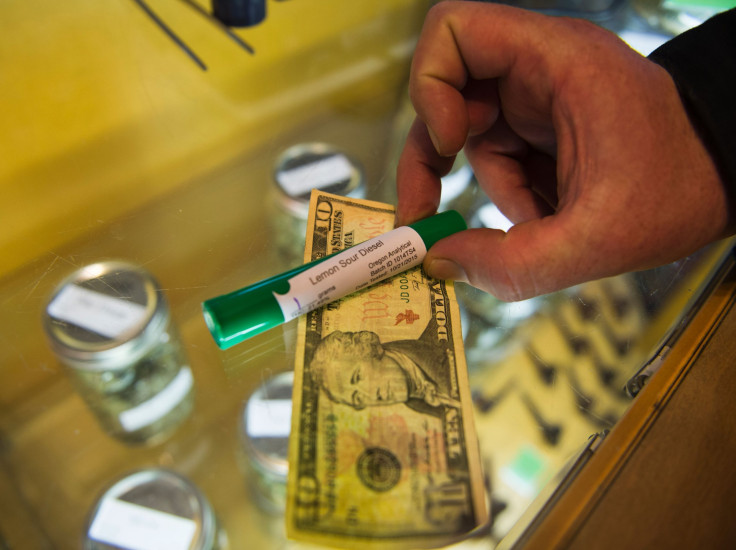What Are Marijuana Taxes Used For? Legal Pot Sales in Oregon Fetch $25.5M In 2016

As some states across the country consider full legalization of marijuana, the potential monetary windfall is a major argument for making the drug legal. In Oregon, where pot is legal and taxed by the state, the state has pulled in some $25.5 million in marijuana taxes thus far in 2016.
That tax dollars came from an estimated $102 million in recreational cannabis sales at dispensaries from January to July. The state imposed a 25 percent sales tax on marijuana at the start of the year, reported the Oregonian.
The state expects to pull in some $44.4 million in marijuana taxes total this year. Regulation for pot costs $28.7 million, which is covered by $12 million in taxes. The rest is covered by fees and licensing for pot businesses. The remainder of the money is distributed, in various proportions, to state services like education, police and mental health/drug/alcohol services.
The figures were released Monday by the Oregon Department of Revenue, and included, for the first time, sales of marijuana-infused edibles. Those snacks and drinks were first available to buyers over 21 starting in June.
It had been difficult to project edible sales because demand on the black market would likely be different than demand in brick-and-mortar dispensaries. "Consumers will not buy from somebody on the street corner selling them infused Kit Kats," Mazen Malik, a senior state economist with the Office of Legislative Revenue, told the Oregonian.
"We know some people would embrace them because they don't like smoking, for example, so it would be an easier thing to go to," Malik said to the paper. "Others would just want to try them because they are new and different and they want to see how they work."
Marijuana could become big business for the country at large. An industry publication found that by 2020, the U.S. cannabis business could be a $44 billion industry, according to a report by CBS News.
"The projections reflect marijuana's march toward the mainstream as it emerges from the shadows to become a respectable, above-board industry that is giving birth to scores of jobs, fostering new business opportunities and creating a broad ripple effect across the country," said Chris Walsh, managing editor of Marijuana Business Daily, publisher of the report, to CBS.
The recreational use of marijuana is legal in Oregon, Colorado, Washington state, Alaska and Washington, D.C., while 19 other states permit medical use of pot. A number of states, including California and Arizona, have legalization initiatives on the ballot this year. Polls have found a majority of the country supports legalization. The Drug Enforcement Agency decided this month, however, not to reclassify drug at the federal level, leaving at the most restrictive Schedule 1 level, on par with heroin, LSD, and ecstasy.
© Copyright IBTimes 2024. All rights reserved.






















